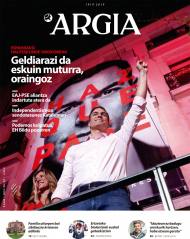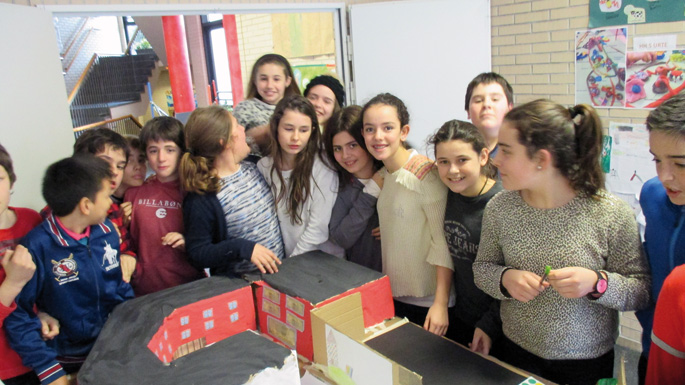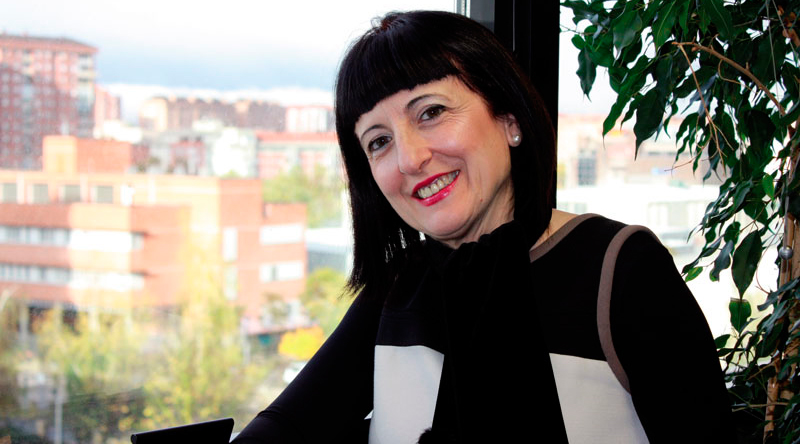101 centres ready to wear purple glasses
- II Congress of the Basque Autonomous Community The Department of Education of the Basque Government has today presented the Co-Education Plan for Education. They have set the roadmap to follow on the road to “equality and good treatment” until 2023. The plan aims to affect the entire community of the center: workers, students, teachers and families.
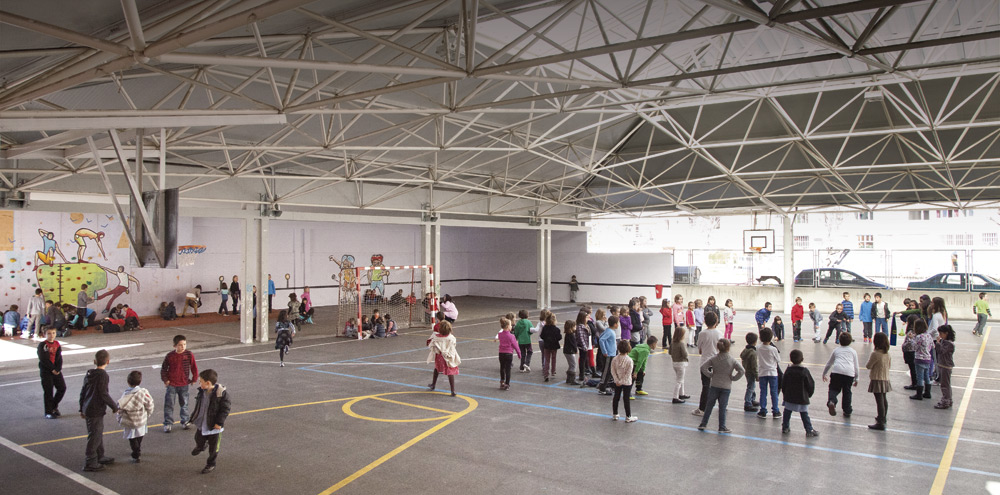
The Co-education Plan must be a rain that permeates the entire center,” said Educative Innovation Director Lucía Torrealday. That is how the new plan stands. After a long process divided into three phases, it has been extracted from the oven and over the next four years it will lay the foundation for equality in schools. However, it has not been born out of nowhere. from 2013 to 2017 I. The II Co-education Plan has been in place and has built the II Plan from its bases “learning from weaknesses and strengthening strengths”.
In fact, Torrealday pointed out that, although the plans have changed, the objectives are the same: “To set up structures and people to promote the co-education model; to promote the integration of the gender perspective in their culture, politics and activities; and, finally, to put in place mechanisms for prevention, early detection and effective response to violence against women”.
Among the weaknesses of the previous plan, Torrealday highlighted two: “First, we list a hundred activities to be carried out and although we extend the execution period by one year, we do not succeed; the second obstacle is found to assess the degree of satisfaction of these activities.” Strategies to address these weaknesses have been designed in the new plan: “The number of activities, for example, has risen from 100 to 41, and I believe that as an added value of the plan, we have put tools and structures in place to get these activities to schools and classrooms.”
Moreover, the process of drawing up the Plan has also had its peculiarities. “The design of the plan has not been an easy task,” and they have had more than one outline in their hands, until they get the latest version. The plan has been prepared by representatives of Berritzegunes, inspection, the Basque Institute for Educational Evaluation and Research ISEI Irakas-System Ebaluatu eta Ikerketa Erakundea, equality technicians and representatives of the central services. Many people have participated, but according to Torrealday he has highlighted the participation of Emakunde, above all.
Lucía Torrealday, director of educational innovation: “I do not believe in the celebrations of 8 March, unless good work is done behind it. The Co-education Plan must be perceived in the center from the entrance to the exit: in the classroom, in the dining room, in the recess and in all other places”
Change in classrooms
Torrealday stressed that although the previous plan was "very powerful", it had difficulties in accessing the classrooms and that the new plan had put the batteries in place. Co-education expert Marian Moreno also shares this: “One of the most remarkable innovations is the facility that the plan has to implement it.” Moreno considers that the objective of the plan has been to provide the educational centers with as many materials as possible to work with co-education in a cross-sectional way. In fact, he took part in this in the Second Congress of Deputies. The Coeducation Plan. He previously worked on the design of the Skolae program in Navarra and says that there he learned a lot: “It made me a lot of excitement when I was called to participate. My job has been, above all, to prepare materials for faculty to work with co-education in classrooms.”
The materials to work in the classrooms have been grouped into eight columns. “We have prepared materials around each pillar, and then each center will have to draw up its own co-education plan based on those pillars.” These are the eight pillars: critical thinking in the face of sexism; the non-sexist use of education and images; the integration of women's knowledge and their social and historical contribution; the peaceful resolution of conflicts through co-educational coexistence projects; personal autonomy and economic independence; spaces in the center and extra-school and complementary activities; equal affective and sexual education; and the prevention of violence against women and intervention.
But what kind of action does the plan envisage for these pillars? At the center level, for example, Moreno quotes: “Rebuilding the backyards with the co-educational identity, putting forces in the school library, incorporating the gender perspective in the center’s activities, establishing relationships and information with families with a gender perspective, reviewing all educational materials and supervising the center’s posters, among others”. However, beyond the center, each teacher has a role in their classroom: “To make women’s work visible throughout history, culture, sport, etc. ; analyze the causes and consequences of patriarchy and inequalities; not channel poor educational and labor orientations; break the stereotypes that appear explicitly in the curriculum; fight against LGTBI phobia; give an egalitarian sexual education and many other things”. Moreover, the plan underlines the importance of talking about good treatment: “We often teach children how we shouldn’t behave rather than behave.”
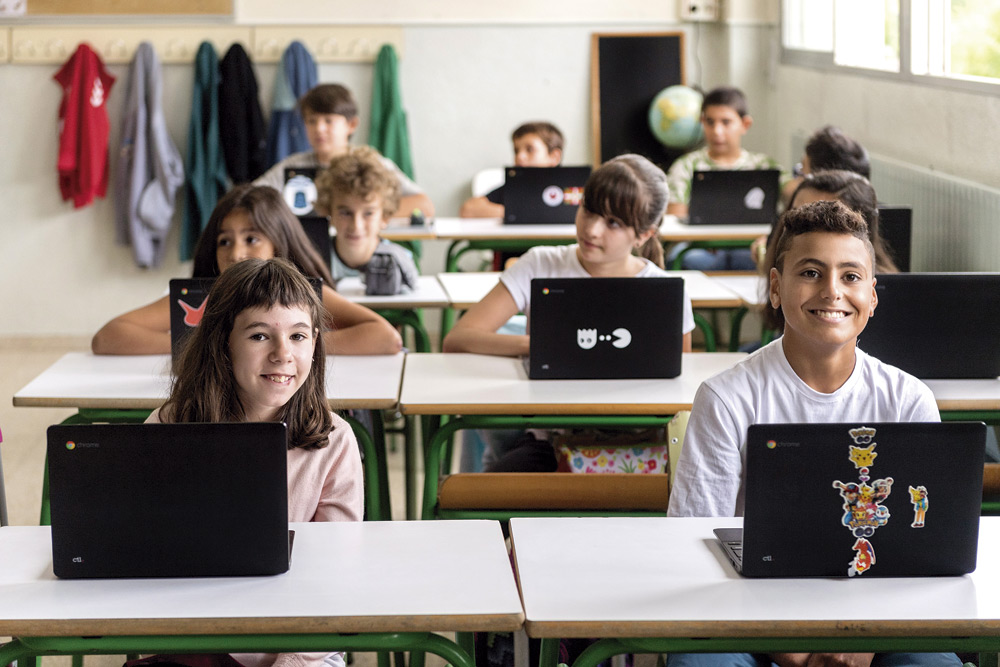
Moreno considers that teachers can do many things in their daily routine and has stressed the importance of incorporating knowledge of domestic work into education as an example: “Knowing how to do homework gives us the necessary autonomy. There has been no co-responsibility in household chores. We enter the labor world, but men are not in the realm of domestic tasks.” Therefore, she believes that it is important to bring to school issues such as co-responsibility, care for people and equal mothers.
However, Torrealday and Moreno are very clear on the key: “Working all issues with a gender perspective.” Moreno has emphasized that in all materials there are themes that allow working the feminist perspective in a transversal way. To this end, it considers it important to take into account some of the key factors that underpin co-education: “For example, working on the visibility of women, egalitarian masculinities, empowered feminities, personal autonomy, and empathy.”
The importance of training
Still, we have to know how to adapt the contents to incorporate the gender perspective, and to do so, Torrealday and Moreno consider that the key is “more training, more training and more training”. In this sense, they will put their forces and offer programmes to both educational agents and families.
“To teach in equality, this first equality has to be within oneself; when a person is egalitarian, he transmits and teaches in equality and equality,” says Moreno. So he believes that not everyone can educate on equality: “There are people with male ideology among teachers, and teachers transmit inequality and discrimination. No one who is racist will be able to educate in inclusion and justice, with equality the same thing happens.”
Marian Moreno, II. Co-education and Skolae Design Expert: “In some cases it’s not that teachers are macho, but that nobody has explained to them what co-education is and when they are told they start to see the differences.”
It considers that training is fundamental to achieve the attention of the faculty, since when training in co-education is offered, the view of the faculty changes: “In some cases it’s not that they’re so machistous, but no one has told them what co-education is, and when they’re told they start to see the differences.” Therefore, he considers that the first step towards starting discrimination is awareness, and this must be done with teacher training. “It would be best if this training were initiated from the university, but as it is not, an effort should be made from education.” On the other hand, he considers that this entails difficulties, as additional training is required for teachers, “for which it is necessary to facilitate from the centers”.
Torrealday has also explained that they will create structures to provide training for actors working in the field of education. This project promotes positive coexistence and the fight against bullying: “In the Bizikasi project we have held many formations and also offered teachers a lot of materials to be able to work the subject with students in an easy way.” It will be the choice of the Department of Education, the material and the training necessary to facilitate the work of the teachers and will do so through the Berritzegunes, among others. According to Torrealday, the Bizikasi project has received a very good evaluation from the centres and therefore they will use the same formula. On the other hand, in the centres there will be a co-education officer who will actively participate in the other committees and activities of the centre.
In any case, the main, or at least the only, engine of the educational system is not the teaching staff. This is what Moreno explained. “Those with a power position in the field of education have a great responsibility. In their hands are the regulation, inspection and education of teachers”. It stresses that they have everything in their power to prioritise equality, and that it is not enough to put tiritas: “The problem is that many people in power positions also need training. Those in positions are also people, and as people they have their backpacks, with their vital experiences.” He believes that this is why it is important for people with conscience in co-education to reach power positions, providing resources for co-education to take place systematically and globally in the classroom.
However, Torrealday does not believe that the problem is solved in the same way. Schools are not an island, although we often think that: “Sometimes we think the centers are containers, and then all the crap of society is thrown out to organize and solve us.” He believes that a little bit of co-responsibility is needed. She knows that schools have to be active agents in solving these problems, but she believes that they also have to say something about other institutions, associations, agents and families. That is why II. She says that to carry out the Co-education Plan, the involvement of families and other actors in the school environment is essential.
Moreno shares that view. He considers that the family is one of the most important aspects of the socialization process, among others, because it is the first: “Anyway, the family is not required by law to act equally, while the centers do.” He believes that the ideal would be to reach a collaboration between families and educational centers, and thus do what is worked at home in school afterwards, but he knows that it is not an easy task. Another important aspect to highlight is leisure: “The ideal would be to educate all students on criteria of equality to be able to identify sexism in daily life. The key is to teach reality from a feminist perspective.”
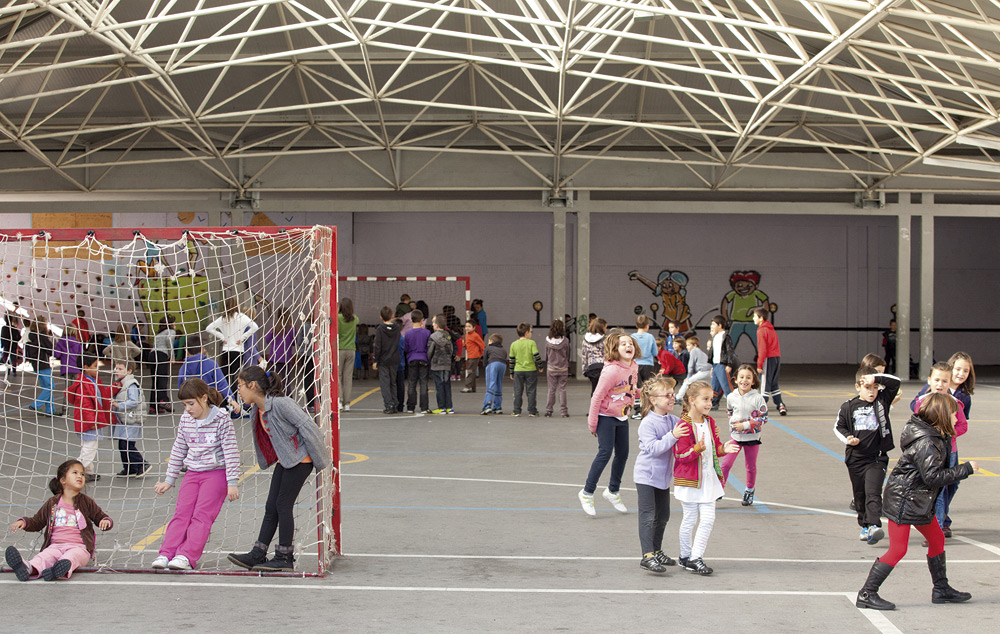
Looking forward
Aware of the importance of co-education, Torrealday has made a great effort to bring equality to the classrooms: “Co-education is important to build the kind of society we want, to build a society that respects the rights of all and all. That’s why it’s essential to me.” Therefore, the Director of Educational Innovation stresses that she expects that the largest number of centers participating in the project: “The data shows this, last year nearly twenty centers were registered in our call, and this year 101 centers.” In fact, he has stated that he does not believe in the celebrations of 8 March if there is no satisfactory work behind him: “The Co-education Plan must be perceived in the center from when you walk through the door until you leave: in the classroom, in the dining room, in the recess and in all other places.”
For Morensians, one of the most important tasks is law enforcement. "Compliance with the equality law is an unavoidable requirement. What is happening is that educational authorities still do not have the courage to enforce the law.” The Navarro Skolae project has set as an example of what can be done by law: “Skolae has shown that it is possible to implement training, resources, materials and strategies in schools.” But it is clear that to do so it is necessary to deal with the most reactionary part of society: “The authorities agree in the law to implement comprehensive co-education projects. It’s not a matter of coercion, it’s a legal issue.”
Irailetik aurrera, eta hala eskatzen duten ikastetxeetan, genero berdintasunari buruzko ikasgaia izango dute 12-14 urteko ikasleek Galizian. Astean ordubeteko iraupena izango du eta erabaki aitzindaria da Espainiako Estatuan.
aukeratzeko gidak Lekeition
Gabonak datozela eta ipuin eta jostailu ez sexistak aukeratzeko gidak argitaratu ditu Lekeitioko Udalak. Hainbat liburu eta jostailuren bidez genero estereotipoak transmititzen dira. Baina berdintasunean oinarrituriko baloreak zabaltzeko material ugari dago, horietako asko... [+]
Eusko Jaurlaritzako Hezkuntza sailak hezkidetza lantzeko eta eraso sexistei aurre egiteko plana jarriko du martxan EAEko ikasgeletan. Besteak beste, “genero eta gizarte eraldaketa” ikasgaia bultzatuko du.









